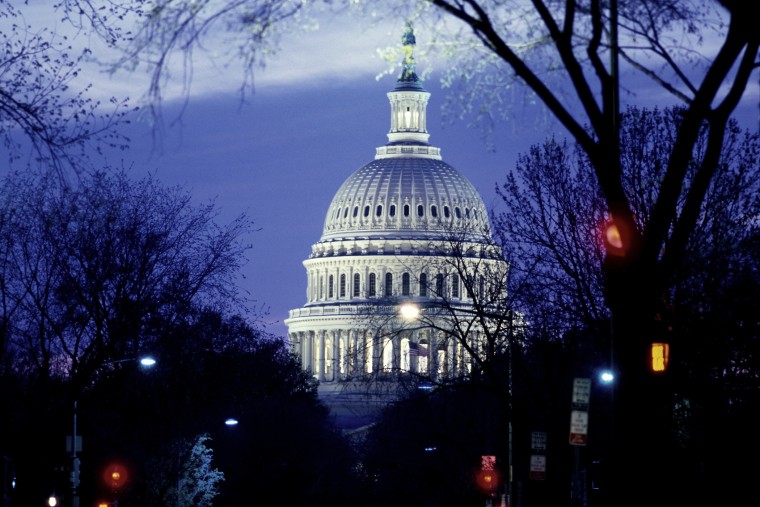Back in July, political scientist Norm Ornstein noted that "blocking ambassadors when the world is in turmoil and America's national interest is at stake is simply shameful." At the time, Senate Republicans just didn't care.
The question now, as Rachel explained on last night's show, is whether GOP senators are prepared to be more responsible now that their five-week break is over.
For example, when it comes to addressing ISIS, there are few countries on the planet more important than Turkey. Consider the White House's full-court press.
The Obama administration on Monday began the work of trying to determine exactly what roles the members of its fledgling coalition of countries to fight the Islamic State in Iraq and Syria will play, with Defense Secretary Chuck Hagel huddled with the leaders of the one country the administration has called "absolutely indispensable" to the fight: Turkey. But after hours of meetings here, there were no announcements of what the government of President Recep Tayyip Erdogan might do. In fact, Turkish officials meeting with Mr. Hagel eschewed the news conferences that usually accompany high-level visits from American officials.
Diplomatic progress with Turkey is critical when it comes to an international response to ISIS, but Senate Republicans have refused to allow the United States to have an ambassador to the country to help with the talks. Obama was forced to dispatch the Bush/Cheney ambassador to Turkey in a temporary capacity because of the immediacy and urgency of the situation.
Note, the problem is not with Obama, who months ago nominated a highly qualified, career foreign-service officer, John Bass, to fill the post. Rather, there's no U.S. ambassador to Turkey right now because of a Republican tantrum.
And it's not just Turkey. The United States wants to help respond to the Ebola crisis in Western Africa, but Republicans won't confirm an ambassador to Sierra Leone. U.S. officials want to address the humanitarian crisis in Central America, but Republicans won't confirm an ambassador to Guatemala. The Department of Homeland Security doesn't even have Senate-confirmed policy chiefs in place to handle terrorism and cybersecurity threats because Republicans haven't allowed votes on pending nominees.
It's important to understand why.
If President Obama had nominated controversial and/or unqualified individuals for these posts, and the Senate GOP minority had concerns about these officials on the merits, we could at least have an intelligent conversation about the process and what can be done to address it.
But that's not what's happening. In July, after Sen. Mike Enzi (R-Wyo.) blocked votes on uncontroversial ambassadorial nominees, the Republican was asked to explain why his party was undermining U.S. diplomatic efforts abroad. "We used to pass ambassadors and all kinds of people en bloc like that," Enzi told his colleagues on the Senate floor, "but we have this nuclear option now that the majority chose so it takes a little longer to do that whole process, and on that basis, I object."
Got that? Republicans abused filibuster rules to such an unprecedented extent that Democrats restored majority-rule on nomination votes. This hurt Republicans' feelings, so they're blocking votes on ambassadors, regardless of the circumstances, regardless of the consequences, and regardless of America's foreign-policy interests. The GOP minority is actively and deliberately undermining ongoing diplomatic efforts as part of a months-long tantrum.
And they're confident that Americans won't hear anything about this before the midterm elections, when they expect voters to reward their antics, quite possibly with majority status.
According to the United Nations, there are 193 nations in the world, and of that total, the United States maintains embassies in 169 countries. As of now, the ambassador’s office is currently empty in roughly a fourth of those embassies because the Senate hasn’t confirmed anyone.
